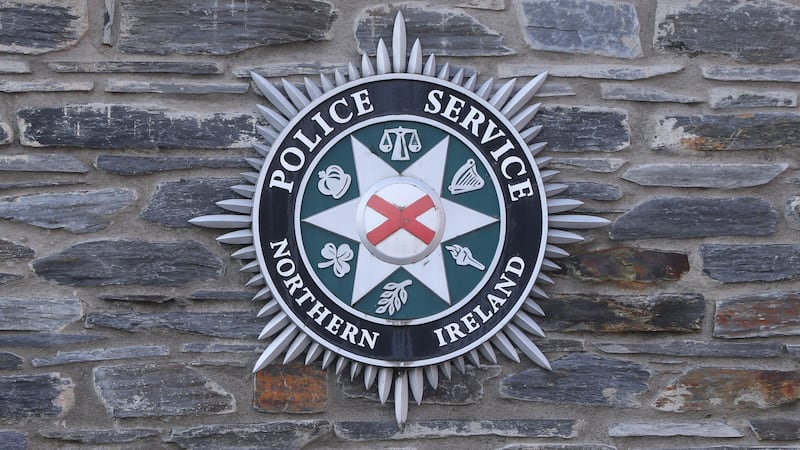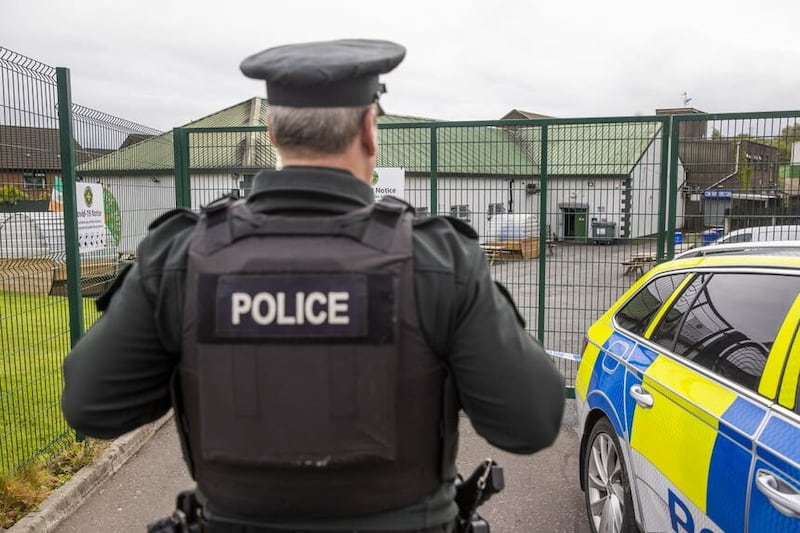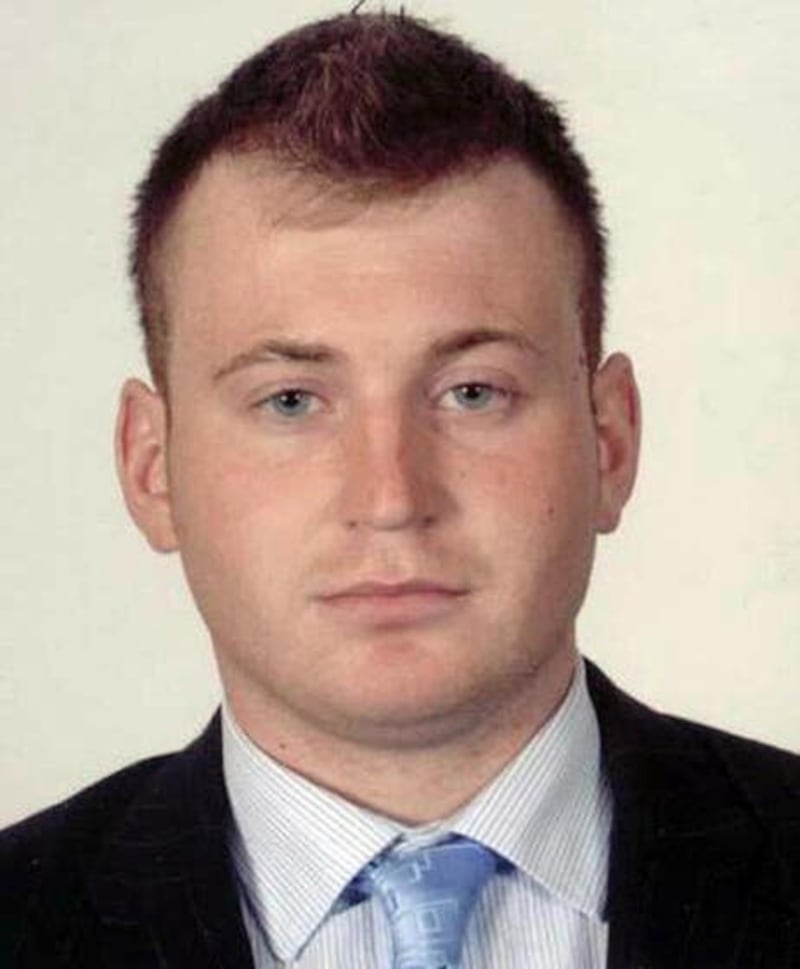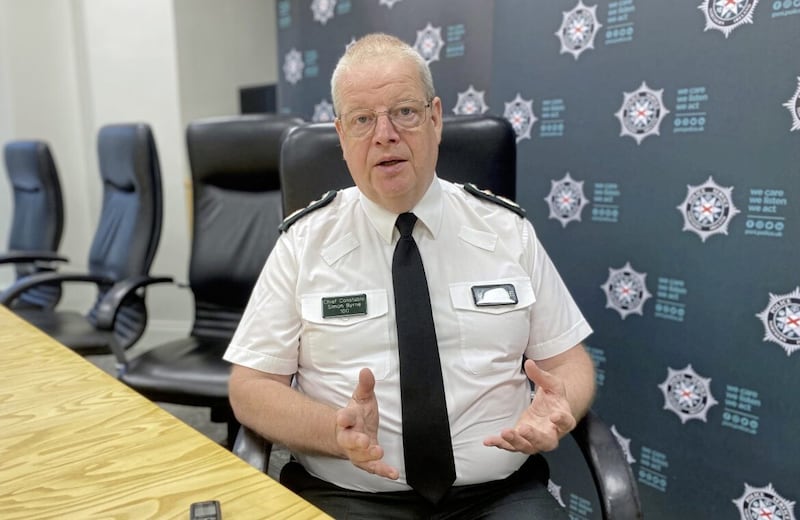What does PSNI stand for?
The Police Service of Northern Ireland (PSNI) was formed in November 2001 to replace the former Royal Ulster Constabulary (RUC) police force in Northern Ireland.
The RUC had played a key role in policing the violent conflict known as the Troubles with more than 300 police officers killed by republican and loyalist paramilitaries.
However, following the signing of the Good Friday Agreement peace deal in 1998 a decision was taken to change to a new police service which became the PSNI.
It was recommended that the PSNI should employ 7,500 police officers in peace-time Northern Ireland.
One of the main reasons for the transition from the RUC to the PSNI was to try to increase support for policing among the Catholic/nationalist/republican (CNR) communities.
Many nationalists had been opposed to the RUC during the 30-year conflict because of allegations that some police officers had colluded with loyalist paramilitaries to murder Catholics.

In 1993 it was revealed that Catholics made up just 6.9% of the RUC.
In 2001 official workforce figures showed 92% of the RUC still came from the Protestant, unionist, loyalist (PUL) communities with critics arguing that it was institutionally anti-Catholic.
As a result, the PSNI was initially legally obliged to operate an affirmative action policy of recruiting 50% of its trainee officers from the Catholic community.
The 2011 Northern Ireland census figures showed that Catholics made up 45% of the population with Protestants accounting for 48%.
In the same year only 29.7% of the PSNI’s 7,200 officers came from a Catholic background, however, among the 2,500 civilian staff the number of employees from the Catholic/nationalist/republican community was just 18%.
Despite this, the British government ended an affirmative action recruitment policy in March 2011.
In June 2023 the percentage of police officers from the Catholic/nationalist/republican community stands at 32.49% with the percentage of officers from the Protestant, unionist, loyalist community standing at 66.2%.
Who is the PSNI chief constable?
The current PSNI Chief Constable is Simon Byrne. He took over in July 2019.
Do PSNI officers carry guns?
The heightened threat level posed by armed paramilitary organisations means that, in contrast to other police forces in the UK and in the Republic of Ireland, all PSNI officers receive firearms training and routinely carry weapons while on duty, with officers permitted to carry personal protection weapons while off duty.

Were PSNI officers killed by republican and loyalist paramilitaries during the Troubles?
It is estimated that 314 RUC officers were killed during the Troubles with more than 9,000 police officers injured.
Since the formation of the PSNI in 2001 two police officers have lost their lives through terrorism.
Dissident republican paramilitaries target police officers

In March 2009 constable Stephen Carroll (48) was shot dead by the Continuity IRA as he responded to a 999 call in Lurgan, Co Armagh.
In April 2011 constable Ronan Kerr (25) was killed by a New IRA booby-trap bomb planted under his car outside his home in Omagh, Co Tyrone.

A number of other dissident republican attacks have seriously injured PSNI officers.
In 2010 Peadar Heffron lost a leg after a booby-trap device exploded underneath his car near Randalstown, Co Antrim.
2023 attempted murder of John Caldwell
In February 2023 PSNI detective John Caldwell was seriously injured after being shot by dissident republican gunmen at a leisure centre in Omagh, Co Tyrone.
What role does MI5 play in Northern Ireland?
In 2007 MI5 (Security Services) took over responsibility for national security intelligence work in Northern Ireland from the PSNI.
In reality this meant that MI5 now has primacy in the targeting and disrupting of dissident republican paramilitary groups.
The PSNI continues to provide operational police response on a day-to-day basis and retains responsibility for targeting and disrupting loyalist paramilitary organisations.
PSNI data breach
An August 2023 data breach revealed that around 40 PSNI officers and staff are working out of MI5 headquarters at Palace Barracks in Holywood, north Down.
Chief Constable Simon Byrne has apologised for the "industrial-scale data breach" which saw the details (surname, initial, rank and role) of 10,000 officers and staff uploaded to a Freedom of Information website. A threat management group has been established to triage officers and staff concerned about the security risk.
The Police Service of Northern Ireland (PSNI ) is investigating a second data breach relating to the theft of documents, including a spreadsheet containing the names of more than 200 serving officers and staff, stolen from a private vehicle in Newtownabbey on July 6.
PSNI recruitment
The PSNI is the second largest police force in the UK in terms of geographical area of responsibility and the third largest force in terms of operational staff.
In July 2023 the PSNI had 6,718 serving police officers with a further 2,629 people employed as police staff.
Less than one third (31.7%) of PSNI police officers are female while 57% of those employed as support staff are women.
People from ethnic minority communities account for only 0.63% of serving police officers while 0.84% are employed as police staff.
Has the PSNI increased in numbers since its 2001 formation?
The latest figures (July 2023) show that the number of PSNI officers is decreasing due to ongoing budgetary cuts.
Traditionally the PSNI’s annual budget is around £750m. However, in May 2023 PSNI Chief Constable Simon Byrne warned that his force faced a funding gap of £141m.
When it was first established in 2001 it was recommended that the PSNI should have 7,500 officers to deal with a non-conflict related Northern Ireland.
However, the PSNI chief constable said that he may have to reduce his number of officers to 6,459 by March 2024 to help save money.

What is the PSNI’s Legacy Investigation Branch?
From its inception in 2001 successive police chiefs have warned that its budget and ability to deal with ordinary crime is seriously damaged by having to deal with more than 1,000 outstanding Troubles-related murder cases.
In 2006 the PSNI established a Historical Enquiries Team (HET) unit to deal with legacy cases.
However, the HET was disbanded after an oversight report in 2013 concluded that the cold case review unit had practiced “less rigour” when investigating state-related killings compared to other deaths.
In 2015 the PSNI established a Legacy Investigations Branch (LIB). Critics claimed that the LIB was controlled by former members of the Special Branch and RUC.
In 2022 it was revealed that the LIB had a workforce of 55 police officers and staff dealing with 1,117 legacy cases.
In the same year the British government introduced new legislation, the Northern Ireland Troubles (Legacy and Reconciliation) Bill, which will ban all criminal investigations and court cases related to the Troubles.
The legislation would create a new Independent Commission for Reconciliation and Information Recovery (ICRIR) with responsibility for reviewing deaths and other incidents forming part of the Troubles and publishing its findings.
It would give immunity for individuals that provide information to the ICRIR. Future prosecutions would only be possible where immunity was refused.
The legislation would also halt investigations into Troubles-related conduct, other than those conducted by the ICRIR and block future civil claims and inquests which have not reached an advanced stage. The legislation is opposed by all major Stormont parties, the Irish Government and victims’ campaign groups.








